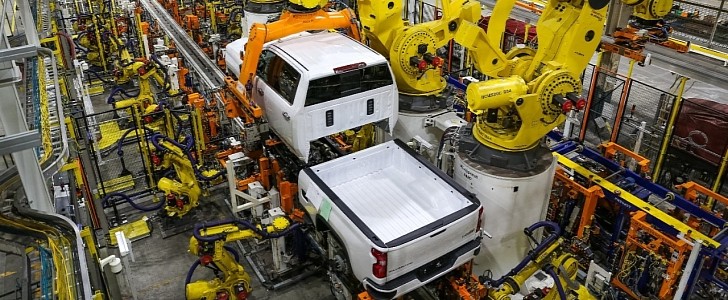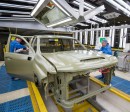According to a new report, the chip shortage was, is, and will continue to be a major problem for global automakers. However, the reasons for the whole thing are slightly different this time.
First and foremost, it’s important to understand how the chip shortage came to be in the first place.
Back in the first half of 2020, when the planet started fighting with the invisible enemy that’s still around these days, most people began working remotely because of obvious reasons. The demand for consumer electronics, be they PCs, laptops, smartphones, cameras, and so on, therefore skyrocketed.
All these devices use chips; hence the demand for chips increased overnight pretty much all over the world.
Chipmakers ended up struggling to meet all orders and eventually failed to do so. As a result, the disruptions caused in some industry sectors were massive. Carmakers had no other option than to temporarily stop their production in the automotive sector because of the lack of chips.
2022 represents the third year of struggle in terms of chip inventory, and according to a recent report, what’s fueling the problem this time is actually the transition to new-generation technology and vehicles that use more semiconductors.
In other words, because automakers are building smarter vehicles, including EVs and models with self-driving capabilities, the number of chips per unit has increased substantially. Chipmakers have also increased prices, and while carmakers can theoretically rebuild their inventories, doing this is not only costly but also more difficult because of the bigger number of chips they need.
At this point, the existing foundry capacity for automotive chips is said to be full, so by the end of the year, we should theoretically notice a small recovery in the entire industry as well.
However, this doesn’t necessarily mean the chip shortage will be over. Several high-profile industry figures, including VW and BMW officials, warned the struggle would continue in 2023, which means the higher prices and the huge waiting times wouldn’t go away too soon.
Back in the first half of 2020, when the planet started fighting with the invisible enemy that’s still around these days, most people began working remotely because of obvious reasons. The demand for consumer electronics, be they PCs, laptops, smartphones, cameras, and so on, therefore skyrocketed.
All these devices use chips; hence the demand for chips increased overnight pretty much all over the world.
Chipmakers ended up struggling to meet all orders and eventually failed to do so. As a result, the disruptions caused in some industry sectors were massive. Carmakers had no other option than to temporarily stop their production in the automotive sector because of the lack of chips.
2022 represents the third year of struggle in terms of chip inventory, and according to a recent report, what’s fueling the problem this time is actually the transition to new-generation technology and vehicles that use more semiconductors.
In other words, because automakers are building smarter vehicles, including EVs and models with self-driving capabilities, the number of chips per unit has increased substantially. Chipmakers have also increased prices, and while carmakers can theoretically rebuild their inventories, doing this is not only costly but also more difficult because of the bigger number of chips they need.
At this point, the existing foundry capacity for automotive chips is said to be full, so by the end of the year, we should theoretically notice a small recovery in the entire industry as well.
However, this doesn’t necessarily mean the chip shortage will be over. Several high-profile industry figures, including VW and BMW officials, warned the struggle would continue in 2023, which means the higher prices and the huge waiting times wouldn’t go away too soon.






